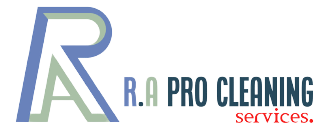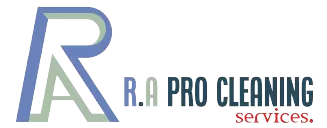Homemade Bathroom Cleaners: A Comprehensive Guide to Effective and Affordable Solutions
Maintaining a clean bathroom is a significant step towards better hygiene and more comfort. However, maintaining bathroom cleanliness is not always an easy DIY task. Although you can consider getting help from professional cleaners, making a homemade cleaner for the bathroom is a more affordable option. There are many recipes for DIY Homemade Bathroom Cleaners, but many of them are less effective than they claim to be. Whether they leave a film on the surfaces or do not effectively clean stains, each solution has its own downsides. However, today, you can learn how to make two cleaning solutions that are ultimately effective and deliver shiny results! This article will guide you through making two affordable, eco-friendly, and effective cleaning solutions and fully inform you about the best practices for using them. Benefits of Homemade Cleaners DIY homemade bathroom cleaners can protect your health by reducing exposure to harsh chemicals. If you have children at home, their exposure to cleaning products, the leftovers of cleaning products on surfaces, or even the vapor that chemical cleaners produce can pose health risks to them. Although the same goes for adults, children are more vulnerable to these toxic chemicals. Moreover, homemade cleaners are more affordable and more eco-friendly than store-bought cleaners. Since there are no toxic chemicals in them and they are made using over-the-counter ingredients, they will not harm the environment later, and making them is much easier and less expensive than buying chemical cleaning products. The Myth of Baking Soda and Vinegar First, let’s talk about a common misconception about homemade cleaners. Mixing baking soda and vinegar doesn’t make a good cleaning solution. Baking soda is a base and a mild abrasive that is helpful with scrubbing and deodorizing. On the other hand, vinegar is an acidic liquid that effectively cuts through grease and mineral deposits. Mixing the two will only cause the acidic vinegar and alkaline baking soda to “cancel each other out” since they will chemically react to each other and produce water and carbon dioxide. This reaction will result in both ingredients losing their effectiveness in cleaning. Vinegar and baking soda are mild in acidity and alkalinity, so they are great options for separate bathroom cleaning solutions and will not damage the surfaces if used correctly. Thus, this article will teach you to make two different DIY bathroom cleaners: one using baking soda and one using vinegar. This is a common recipe for homemade cleaners. However, the devil is in the details of how to use each and what surfaces each cleans best. Baking Soda-Based Solutions Baking soda-based solutions are easy to make and very effective when you want to scrub a surface to get rid of stains. Since baking soda has bleaching properties, it’s ideal for scrubbing surfaces and making them shine. Moreover, baking soda is an excellent deodorizer and can effectively deodorize toilets and bathrooms. While vinegar-based solutions can help with dirty surfaces and mineral deposits, they can still leave behind smells. This is where baking soda comes into play, effectively eliminating any odor. Here’s how you can use baking soda: Recipes Here are some baking soda-based recipes for homemade bathroom cleaners: How to Use Baking Soda for Scrubbing As mentioned above, you can take baking soda, and add enough water to form a thick paste. Alternatively, you can sprinkle some baking soda on a surface, let it sit for some time, and then scrub until it’s clean. The latter method is explained often in the following use cases. However, you can use the former method for stubborn stains. Baking Soda Use Cases Vinegar-Based Solutions Due to their acidic nature, vinegar and vinegar-based solutions are very helpful when you want to clean soap scum, mineral deposits, and grime. Mix equal parts of water and vinegar in a spray bottle to make the all-purpose cleaner. Alternatively, some surfaces will require the use of vinegar itself. To know the details for each use case, read along! Recipes Here are some vinegar-based recipes to make effective DIY cleaning solutions: Use Cases for Vinegar General Instructions for Use Here are some general instructions for using baking soda and vinegar in separate solutions to clean different furniture, appliances, carpets, and more! Baking Soda Typically, baking soda is used for its bleaching properties or its deodorizing effect. Either way, sprinkling some baking soda on a surface, letting it sit for some time, and then vacuuming, scrubbing, or rinsing works well. This method works well for carpets and upholstery. However, before you use it, ensure that baking soda’s alkaline nature will not damage your belongings. Vinegar Vinegar or vinegar-based solutions are very effective for greasy surfaces, mineral deposits, and other types of stains. Typically, you must spray the vinegar solution onto the surface, let it sit for a few minutes, and then wipe the surface dry and clean with a microfiber cloth. Bathroom Cleaning Service In and Near Denver, CO Sometimes, cleaning a bathroom is too much work. If you need help handling your bathroom cleaning tasks, RA Pro Cleaning offers expert bathroom cleaning services in and near Denver, CO. With a team of reliable, professional cleaners, we offer the best cleaning services near you at affordable rates. Our commercial cleaners are trained to clean efficiently and with great attention to detail. Whether for bathroom cleaning or any other residential cleaning services, you can always trust us to deliver spotless results. Call us now, or visit our website and get 20% off your first clean! FAQs – Homemade Bathroom Cleaners
Homemade Bathroom Cleaners: A Comprehensive Guide to Effective and Affordable Solutions Read More »



